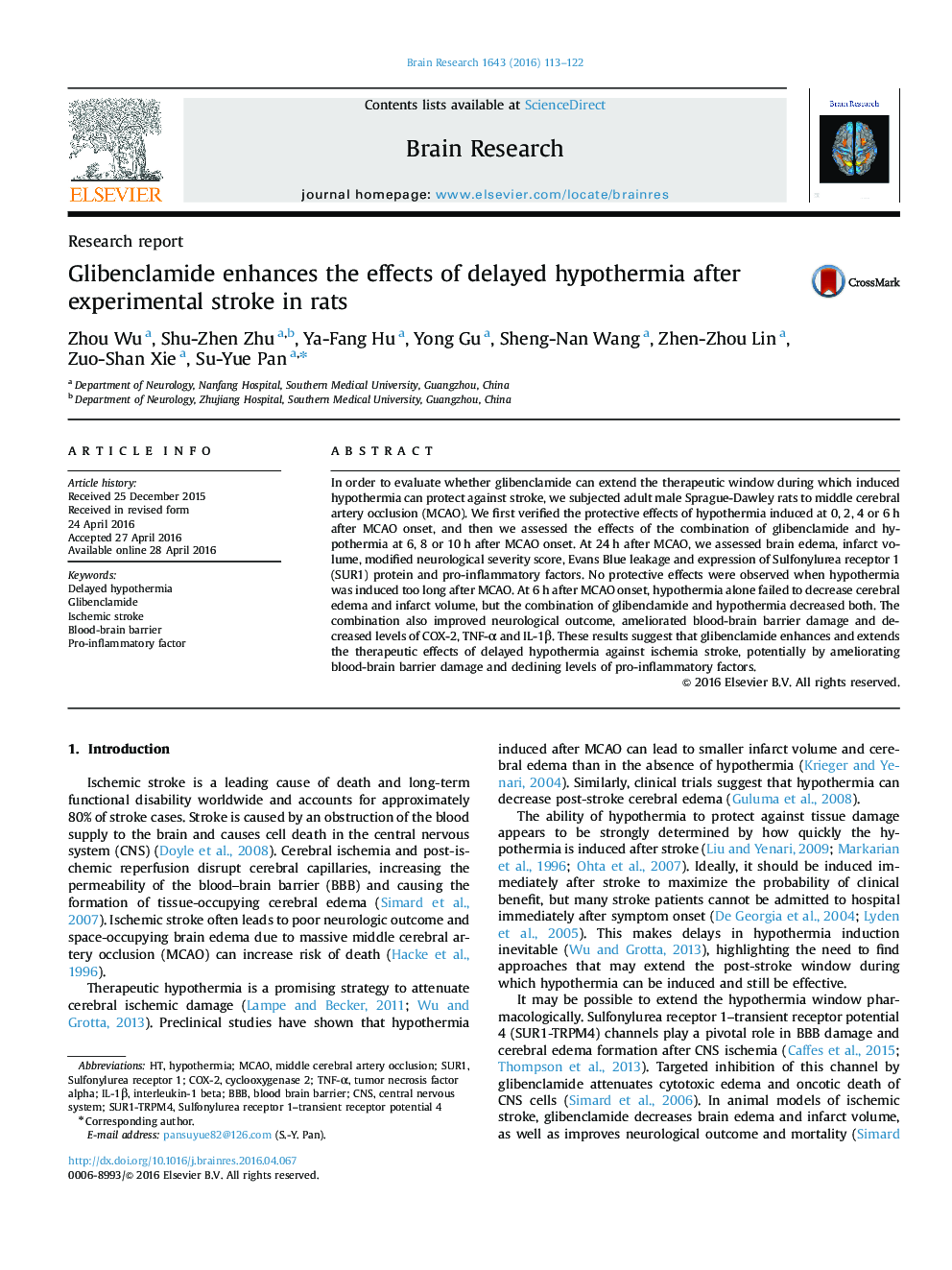| Article ID | Journal | Published Year | Pages | File Type |
|---|---|---|---|---|
| 4323533 | Brain Research | 2016 | 10 Pages |
•Glibenclamide enhanced the effects of delayed HT on brain edema and infarct volume.•Glibenclamide combined with delayed HT improved neurological outcome.•Glibenclamide combined with delayed HT alleviated BBB damage.•Glibenclamide combined with delayed HT decreased pro-inflammatory factors.•Protective effect of HT is determined by the time to cooling initiation.
In order to evaluate whether glibenclamide can extend the therapeutic window during which induced hypothermia can protect against stroke, we subjected adult male Sprague-Dawley rats to middle cerebral artery occlusion (MCAO). We first verified the protective effects of hypothermia induced at 0, 2, 4 or 6 h after MCAO onset, and then we assessed the effects of the combination of glibenclamide and hypothermia at 6, 8 or 10 h after MCAO onset. At 24 h after MCAO, we assessed brain edema, infarct volume, modified neurological severity score, Evans Blue leakage and expression of Sulfonylurea receptor 1 (SUR1) protein and pro-inflammatory factors. No protective effects were observed when hypothermia was induced too long after MCAO. At 6 h after MCAO onset, hypothermia alone failed to decrease cerebral edema and infarct volume, but the combination of glibenclamide and hypothermia decreased both. The combination also improved neurological outcome, ameliorated blood-brain barrier damage and decreased levels of COX-2, TNF-α and IL-1β. These results suggest that glibenclamide enhances and extends the therapeutic effects of delayed hypothermia against ischemia stroke, potentially by ameliorating blood-brain barrier damage and declining levels of pro-inflammatory factors.
